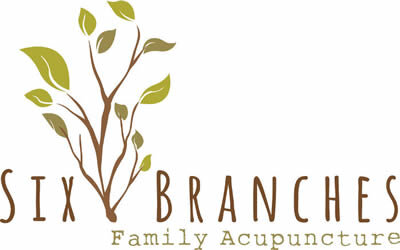Ask any med school intern or new parent and they will tell you how much they miss sleep. People often focus on nutrition for better health but, actually, good sleep is just as important as good nutritionin the quest for longevity. The reality is that most people in North American culture are not getting enough. Science has figured out that, among other things, sleep helps us have stronger immune systems, better emotional functioning, and increased learning capacity and memory. We've all heard that 8 hours of sleep is the imperative, but it turns out that when that sleep happens is actually more important than how long it lasts. In Western science, there is a lot of evidence linking late-night shift work with a host of health problems. In 2007, the International Agency for Research on Cancer (IARC) even went so far as to classify night shift work as a probable human carcinogen. TCM theory, also, declares that night time is the right time for sleep!
Similar to the idea of circadian rhythms, in TCM theory, nighttime is yin, while daytime is yang. So it follows that yang activities should be done in the daytime, between 6 AM and 6 PM, and yin activities should be done at night, between 6PM and 6AM. Yang activities include working, exercising, and eating, while yin activities include relaxing, digesting, and sleeping. After 6 PM, it's best to avoid activities that are too stimulating, especially because they may throw off your sleep cycle, and sleep is the most important yin activity of all.
TCM has a lot to say about sleep and sleep difficulties, and insomnia is one of the conditions we see most often. In an ideal TCM world, we'd all be in bed by 10 PM. I know bartenders and rock stars won't like to hear this, but falling asleep by 11 PM will do wonders for your health. Here's why.
Like circadian rhythms, TCM also has an idea about the rhythm of our bodies throughout the day and night. This meridian clock shows the two-hour sections of time that correspond to each Organ System in TCM. An Organ is thought to be at its strongest, and to rule over the function of the body during this time. When someone wakes regularly at the same time each night, we consider that there may be an imbalance with that Organ System.
The Lung, Large Intestine, and Liver/Gall Bladder, are all at their strongest at night. In Western understanding, these organs are main sites of detoxification in the body, so getting enough sleep is essential for cleansing our bodies and bringing them back into balance.
In TCM, the Liver is responsible for moving the body's Qi all day long, so it needs a chance to do its other work, like storing the blood and replenishing yin. When the Liver doesn't have time to rest and nourish the blood and yin, we can start to see menstrual problems, tendon injuries, dry eyes, irritability and anger, and signs of Liver Qi stagnation.
The mental-spirit aspect of the liver, called the Hun (hwen), is our creative spirit and inspiration. If the Hun is well-rooted in Liver blood, it can help us plan our life with wisdom and vision. If Liver blood is weak, our Hun cannot give us a sense of direction in life. Getting enough sleep is essential for our creative endeavors. I know there are many people who find that their most creative time is late at night. This is because of the strength of the Hun at this time, but it can also signal a deficiency of Liver blood because the Hun is not rooted enough to go to sleep. It's actually much better for the Hun to be the most active while you are sleeping.
Besides being the Gallbladder time, 11 PM - 1 AM is an important time for sleep because that is when the Heart is at its weakest. The Heart, another blood-storing and nourishing organ, most needs to rest during that time. When the Heart blood and yin aspects are weak, falling asleep may be difficult because the mind can not settle down, or "take root in the blood" as we call it. The irony is that by staying up late and 'burning the midnight oil', we are literally using up our blood and yin without replenishing them, which will eventually lead to 'burn-out'. It's easy to see how this can turn into a vicious cycle.
Have other questions about TCM's views on sleep? Feel free to leave a comment below. For more information on ways to address insomnia, click here, or talk to your local acupuncturist!






